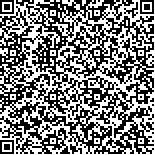| 引用本文: | 黄亦辉,倪娇娇,赵婧,徐晓青,许景理,俞鹏飞,袁莉,应杰儿.槐耳醇提物对小鼠胃癌抑制作用及对肠道菌群的影响[J].中国现代应用药学,2024,41(21):28-39. |
| Huang Yihui,Ni Jiaojiao,Zhao Jing,Xu Xiaoqing,Xu Jingli,Yu Pengfei,Yuan Li,Ying Jieer.Inhibitory Effect of Huaier n-butanol Extract on Gastric Cancer in Mice and its Influence?on Gut Microbiome[J].Chin J Mod Appl Pharm(中国现代应用药学),2024,41(21):28-39. |
|
| |
|
|
| 本文已被:浏览 474次 下载 255次 |

码上扫一扫! |
|
|
| 槐耳醇提物对小鼠胃癌抑制作用及对肠道菌群的影响 |
|
黄亦辉1, 倪娇娇2, 赵婧2, 徐晓青3, 许景理1, 俞鹏飞2,4, 袁莉2,4, 应杰儿5
|
|
1.浙江中医药大学第二临床医学院;2.浙江省肿瘤医院;3.杭州市西溪医院;4.浙江省上消化道肿瘤防治重点实验室;5.温州医科大学
|
|
| 摘要: |
| 目的 评估槐耳醇提物在胃癌荷瘤小鼠体内的抑瘤作用及对肠道菌群的影响。
方法 构建小鼠前胃癌细胞系(MFC)荷瘤小鼠模型,每日给药槐耳醇提物,监测小鼠体重和瘤径,并于实验完成后测量瘤块的体积和重量。对小鼠瘤块进行免疫组化实验,检测Ki67、Bcl-2、CD3、CD4、CD8、CD11c、FOXP3、RORγt的表达情况,评估瘤块内肿瘤细胞的增殖、凋亡情况及免疫活性。此外,对小鼠粪便进行16S rRNA高通量测序以探究槐耳醇提物对肠道菌群结构组成和多样性的影响。结果 1.槐耳醇提物能抑制小鼠体内胃癌皮下瘤的生长。2.槐耳醇提物可显著促进瘤体内CD3,CD4,CD11c,RORγt表达,并抑制FOXP3表达,影响肿瘤免疫微环境。3.在小鼠胃癌模型中,抗生素的预使用破坏了肠道菌群,并影响瘤块内免疫微环境和槐耳醇提物的抗胃癌效应。4.槐耳醇提物干预后的小鼠肠道菌群门水平中的Firmicutes丰度相对减少,Proteobacteria与Bacteroidetes丰度相对增加,发生菌群簇分离,属水平中的Rikenellaceae_Rc9_gut_group,Duncaniella,Oscillibacter,Eubacterium nodatum group相对增加,Roseburia,Anaerotruncus,Rikenella相对减少,提示槐耳醇提物的抑癌过程中肠道菌群发生了改变。结论 本研究表明,槐耳醇提物抑制小鼠体内胃癌生长并影响肿瘤免疫微环境。此外,槐耳醇提物发挥抑瘤过程中影响了荷瘤小鼠的肠道菌群丰富度和多样性。 |
| 关键词: 胃癌 槐耳醇提物 肠道微生物 免疫微环境 生物标志物 |
| DOI:10.13748/j.cnki.issn1007-7693.20241305 |
| 分类号: |
| 基金项目: |
|
| Inhibitory Effect of Huaier n-butanol Extract on Gastric Cancer in Mice and its Influence?on Gut Microbiome |
|
Huang Yihui1, Ni Jiaojiao2, Zhao Jing2, Xu Xiaoqing3, Xu Jingli1, Yu Pengfei2,4, Yuan Li2,4, Ying Jieer5
|
|
1.The Second Clinical Medical College of Zhejiang Chinese Medical University;2.Zhejiang Cancer Hospital;3.Xixi Hospital of Hangzhou;4.Key Laboratory of Prevention, Diagnosis and Therapy of Upper Gastrointestinal Cancer of Zhejiang Province;5.Wenzhou Medical University
|
| Abstract: |
| OBJECTIVE To evaluate the tumor suppressive effect of Huaier n-butanol extract in gastric cancer -bearing mice and its effect on gut microbiome, and to explore the role of specific flora in gastric cancer as a biomarker.
METHODS Mouse Forestomach Carcinoma (MFC) tumor-bearing mouse model was constructed, Huaier n-butanol extract was administered daily, and the body weight and tumor diameter were monitored daily. Additionally, the volume and weight of the tumor mass were measured after the completion of the experiment. Immunohistochemical staining experiments were performed on mouse tumors to detect the expression of Ki67, Bcl-2, CD3, CD4, CD8, CD11c, FOXP3, and RORγt, and to evaluate the proliferation, apoptosis and immune activity of tumor cells in the tumor mass. Furthermore, 16S rRNA high-throughput sequencing of mouse feces was performed to explore the effect of the extract on the structural composition and diversity of the gut flora. Finally, qPCR experiments targeted the specific and differential gut microbiome in gastric cancer tissues to explore the correlation between their abundance and prognosis in patients with advanced gastric cancer.
RESULTS 1. Huaier n-butanol extract can inhibit the growth of gastric cancer in mice. 2. The extract can significantly promote CD3, CD4, CD11c, RORγt expression, and inhibit FOXP3 expression, affecting the tumor immune microenvironment. 3. In the mouse subcutaneous tumor model, pre-use of antibiotics destroyed the gut microbiome, which then affected the immune microenvironment in the tumor and the anti-gastric cancer effect of Huaier n-butanol extract. 4. After the intervention of Huaier n-butanol extract, the abundance of Firmicutes in the intestinal flora of mice was relatively reduced, while the abundance of Proteobacteria and Bacteroidetes were relatively increased, and bacterial clusters are separated. From the level of Genus, Rikenellaceae_Rc9_gut_group, Duncaniella, Oscillibacter, Eubacterium nodatum group have relatively increased, and Roseburia, Anaerotruncus, and Rikenella have relatively decreased, suggesting that the intestinal flora have changed in the process of cancer inhibition by Huaier n-butanol extract.
CONCLUSION This study showed that the Huaier n-butanol extract could inhibit the tumor growth and affect the tumor immune microenvironment of MFC tumor-bearing mice. In addition, Huaier n-butanol extract affected the richness and diversity of gut microbiome in tumor-bearing mice during the process of tumor inhibition. Moreover, the selected specific differential bacteria provide a new idea for predicting the prognosis of gastric cancer patients. |
| Key words: gastric cancer huaier n-butanol extract gut microbiome immune microenvironment biomarkers |
|
|
|
|
